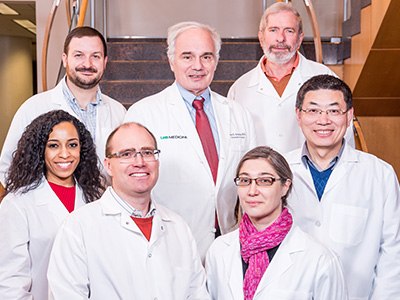 Dean Assimos, M.D., chair of the Department of Urology and director of the Center for Research on Obesity and Oxalate Kidney Stones (COOKS), has been awarded a second P20 grant to continue research on, “The Influence of Obesity on Oxalate Metabolism and Handling in Calcium Oxalate Stone Formers.”
Dean Assimos, M.D., chair of the Department of Urology and director of the Center for Research on Obesity and Oxalate Kidney Stones (COOKS), has been awarded a second P20 grant to continue research on, “The Influence of Obesity on Oxalate Metabolism and Handling in Calcium Oxalate Stone Formers.”
The P20 grant has been approved for funding by the National Institute of Diabetes and Digestive and Kidney Diseases (NIDDK) for $312,208 each year for two years.
The P20 grant awarded in 2018 was used to establish COOKS, the multidisciplinary research center, and begin research on the impact of obesity in endogenous oxalate synthesis.
COOKS investigators from the UAB Department of Urology, UAB Department of Nutrition Sciences, UAB Department of Medicine, UAB Nutrition Obesity Research Center, and UTSW Department of Internal Medicine will continue to study the relationship between obesity and stone formation.
The prevalence of both kidney stones and obesity is increasing in the United States. The Southeast is considered the kidney stone belt, a region of the country where there is the highest prevalence of kidney stone formers. While the associations between obesity and kidney stone risk have been defined, the mechanisms behind this relationship are unknown.
Preliminary data support a direct relationship between obesity and the amount of urinary oxalate excreted derived from endogenous oxalate production. Oxalate is a part of the most common type of kidney stone.
The goal of the P20 is to serve as a platform to develop novel therapies for stone prevention.